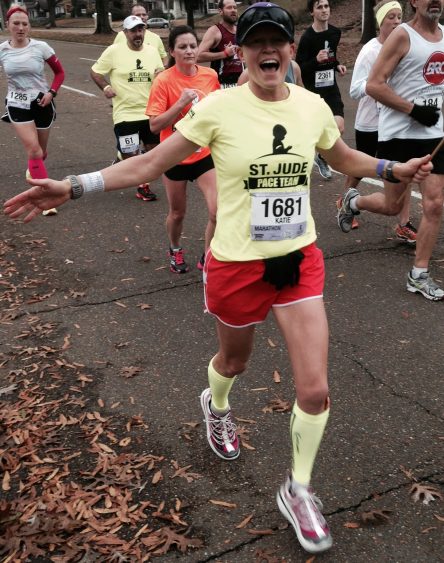What is your educational background?
I went to Hendrix College in Conway, AR and graduated with a Bachelor’s Degree in
Psychology. While I was there, I played varsity soccer and tennis, as well as every
Intramural Sport they offered. It was there that I decided I wanted a career in sport, and
I obtained a Graduate Assistantship in the Campus Recreation department at the
University of Arkansas. There, I acquired great experience managing Intramural Sport
programs while I got a Master’s Degree in Sport Management. I earned my first full-time job
as the Intramural Sports Coordinator at the University of Maryland. What an adventure!
I organized multiple on-campus sport leagues including flag football, basketball,
volleyball, softball, and so many other sports. Training and developing the student employees who worked as referees and supervisors was my favorite part. I was able to host huge regional flag football and basketball tournaments, where Intramural teams would come in from other states to compete, and I got to work at the National Flag Football
championships every year! After a few years at Maryland, I obtained a job in the Campus Recreation department back at the University of Arkansas. I spent the next 13 years there managing various sport-related programs and facilities, including fitness, aquatics, and adaptive sports. During that time, I enrolled in a doctoral program in Sport Management, and received an Ed.D. in Sport Management in 2010. I started teaching classes at the U of A, and really enjoyed it. I decided that for the next phase of my career, I would like to teach full-time. UA Little Rock gave me that opportunity, and I’m loving it!
What do you like most about your career?
For a living, I help people to play and have fun… which is pretty rewarding! I also enjoy
being able to provide insight from the “real world” in my field. I spent almost 20 years
working in the sport field, and I can say that I’ve had to deal with situations that no
textbook can teach! I feel like I’m able to give good insights and realistic problems for
my students to consider, based on that experience.
What is your proudest accomplishment?
Last year, I got my 100-mile race PR (personal record). I worked so hard all summer,
running miles and miles (and miles) in the heat. Race day fell on my birthday, and I had
decided that I was going to celebrate, no matter what happened. It turned out way
better than I was hoping… I finished strong in just under 23 hours, feeling the love and
support of so many friends and family. I will cherish that finish for quite a while.
What makes you laugh the most?
I love, love, love the Saturday Night Live seasons from the early 90’s… comedy gold.
What are your hobbies?
Running is the big one! I already mentioned the long-distance endeavors, which is one
genre of the sport that I’m into… (“ultrarunning” is what we call races of distances over the traditional “marathon” distance of 26 miles… common ultra distances are 50K, 50
mile, and 100 mile). I also started being a road marathon “pacer” several years ago.
Pacers are hired by the marathon to run with signs that have a finish time goal printed
largely on them (such as 3:45, or 3 hours 45 minutes). The Pacer keeps the
appropriate pace, and runners who don’t want to worry about “am I going too fast or too
slow to accomplish my finish time goal?” are welcome to follow and run in the group.
Pacers also provide some engagement, conversation, and jokes along the way… a
marathon is a long way; and dull, solitary silence is hard for runners to work through.
So, pacers try to provide some on-course entertainment and encouragement to help
participants not be so lonely in their own heads the whole time. I have paced
marathons across the country, and have met some really cool people along the way!
What was the last book you read?
My summer fun reading included “North” by Scott Jurek. Jurek is an ultra-runner who
was attempting the Appalachian Trail fastest-known-time (FKT) back in 2015. He
accomplished it, but it has since been broken a few times. I really like books about
long-distance foot travel. I am currently reading “Alternative Models of Sport
Development in America” by David Ridpath for one of my Fall classes… it addresses
the consequences of embedding our sport delivery systems so deeply into our
educational structures, and explores how sport is delivered through other systems (such
clubs) elsewhere in the world.
How do you assist graduate students in the sport management program?
I like opening students up to how diverse the career field in sports can be. Sport can be
a business and entertainment tool, such as professional franchises and many of the
revenue-producing college sports. However, at its best, sport can also be a tool for
human development… providing opportunities to be “in the game” (whatever that is!),
rather than simply watching from the stands. Sport can be developmental (such as
Boys & Girls Clubs or Special Olympics), or community-building (such as the Little Rock
marathon)… and these types of sports are right here in our own communities (along
with jobs that need well-trained professionals!). This “sport for all” notion is what I’m
passionate about, and I hope to instill this idea in my students, not matter what their
specific interest is in the sport field.
